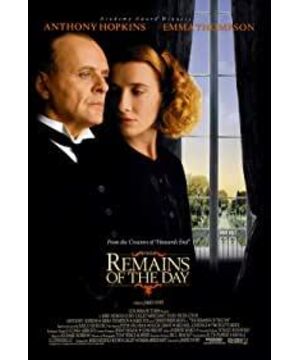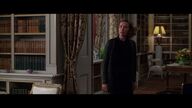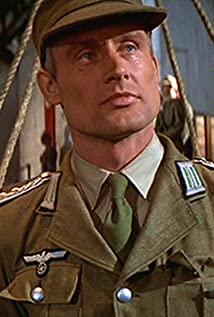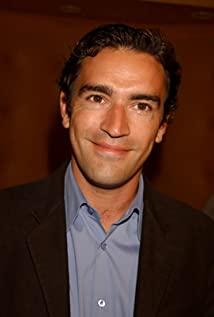Based on the Booker Prize-winning novel. It tells the story of Stevens, the butler of an English manor, on his way to visit an old friend. The film adopts the same "narrative technique of interweaving the past and reality" as the novel. Through his correspondence with his old friends or his personal reflections, he reveals to us little by little his hidden deep feelings with his old friend Miss Kenton 20 years ago. And the past of the manor Lord Darlington, the elegant gentleman, who unfortunately helped Zhou to abuse the past. In the context of the era at the turn of the two world wars, the film seems to be a sunset elegy for the traditional way of life in the old British manor.
As the protagonist and narrator, Stevens is a typical English manor butler image. The most important thing in his life is the word "dignity". In his eyes, this not only means being neither humble nor arrogant, self-denying and serving the public, and doing well in one's own work, but also emphasizing a kind of chivalrous loyalty, dedication, and asceticism. So he remained at his post on the night of his father's death, barely noticeable; he was unmoved when Kenton told him to leave, and even told him to work when he was crying (in this novel No); he is so obedient to his master's political views that he voluntarily chooses to give up his own judgment. But does he really have no emotions and no personal opinions? You didn't see his intoxication with music, you didn't see the broken wine bottle and the swear words he blurted out, and you didn't see the pair holding hands reluctantly in the rain. Stevens has been holding back for so long, and forgetting about himself for so long, maybe until he sees Kenton again, he doesn't realize what's going on in his heart. This journey, although ultimately failed to restore the missed person, but his thinking and examination have won him a new opportunity. The pigeon released from the window at the end of the film symbolizes Stevens opening his heart and rediscovering himself.
Another notable figure is Lord Darlington, owner of the estate. He's suave, upright and kind, without words of character or prestige; that's why Stevens works for him so zealously, even proudly, and unconditionally trusts all his judgments. However, his good-natured personality was unfortunately exploited. He blindly sympathized with the injustice of the Treaty of Versailles against Germany while ignoring the rise and expansion of the German Nazis, which eventually led him to become a political victim. In this regard, the US congressman said in the words: international affairs cannot be decided by gentleman amateurs. Influenced by the Inheritance Tax Act introduced in the early 20th century, the British aristocracy gradually declined, and Darlington's ruin is a reflection of it. However, from the standpoint of this film/book, the director/author neither made any accusations nor regretted it too much, but objectively reflected this historical trend and at the same time discussed its influence and legacy on later generations (the title of the film/book titled " The Remains of the Day also has this meaning).
The Three Musketeers of Merchant Ivory Productions (Producer Ismail Merchant, Director James Ivory and Writer Ruth Prawer Jhabvala) take home a year after Howards End swept nine Oscar nominations and won three awards a year ago. Anthony Hopkins, the best actor two years ago, and Emma Thompson, the actress a year ago, attacked again, and they won another 8 nominations while the iron was hot, tied for second place that year. However, aesthetic fatigue and the strong momentum of encountering "Schindler's List", the film unfortunately failed; and the heyday of Merchant Ivory Productions in the late 1980s and early 1990s also came to an end, and it has never recovered.
View more about The Remains of the Day reviews











